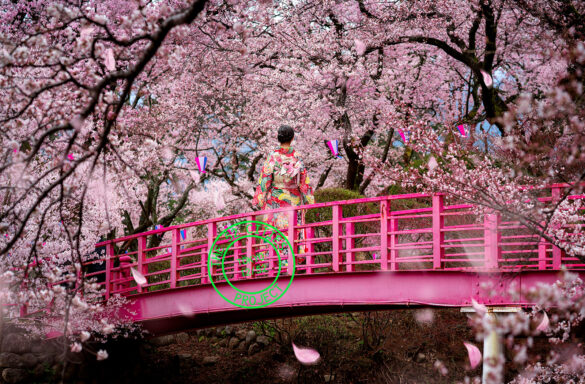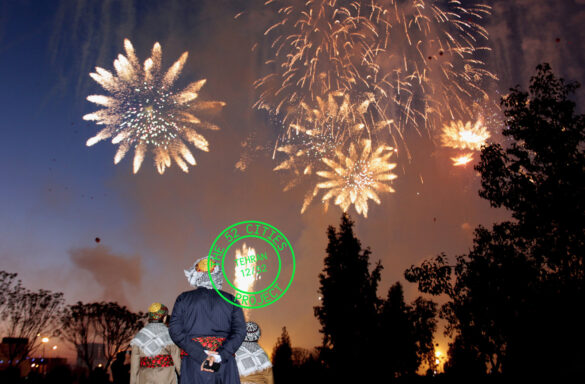PRESS
Threads of urban resilience
11:40:22 19 March 2024
26.9124° N, 75.7873° E
Earlier this year, I was invited to speak at the inaugural International Craft Summit in Jajpur. A wonderful occasion, it brought together a community of craft experts, enthusiasts, artisans, and UN representatives, creating a melting pot of ideas, expertise, and experience. As I understand it, the Summit ended up hosting over 100 delegations, 50 speakers, and 20 international artists, all hailing from 18 countries. The UN represtantives included UN-Habitat, UNDP, UNESCO Culture, UNESCO Creative cities, and UNICEF.
I was hoping to be there in person but hadn’t accounted for the length of time it takes for a working visa application to be cleared. Nonetheless, it was an honour to join in the early hours remotely, to be part of a fascinating set of talks bent on understanding what it is about traditional and modern crafts that strengthen and democratise the city, and to be given the opportunity to throw my two cents into this most venerable of hats.
Charged with exploring how craft and creative practices protect the health, economies, and wellbeing of contemporary cities, I shared the stage with the philosopher, cultural thinker, and editor-in-chief of The International Journal of Crafts and Folk Arts Dr. Byung Hoon Jeong and cultural and visual arts consultant and curator Jude van der Merwe. Both were absolutely fascinating. I loved Dr Jeong’s account of how the creative city project he’s led in Jinju (Korea) since 2017 has continually championed the importance of the city-based craft ecosystem as a means not just of protecting and growing traditional crafts and their community of makers but also as way of attracting wider industry and investment. Equally, I was humbled listening to Van der Merwe’s founding of and work with the Indian Ocean Craft Triennial and the significance of taking these extraordinarily beautiful crafts and their stories into the world, at scale and in a way that continually serves the maker communities and traditions she does so much to support.
It was clear from both talks and the fact that the inaugural summit is being held in Jajpur – both home to a wonderful tradition of crafts and an increasingly modernising city – that the post-industrial city is a cautionary tale when it comes thinking about how to ensure that the geographies, skills, and entrepreneurial networks required for the saving and flourishing of the craft industry aren’t reduced to a footnote in the annals of history. We have lost so much in terms of these local traditions, the families connected across generations with craft and creativity, and the economies that sustained pre-industrial Britain.
All of which was a great and unexpected segue into my own talk, which explored ways of uncovering, connecting with, and catalysing new and old types of craft in post-industrial Britain. From a policy level, this ‘uncovering’ and ‘connecting with’ asks that our public bodies see remnant, hidden, and sometimes devalued traditional crafts for what they are: our rich and highly multicultural heritage. Once (re) valued, the creativity of these crafts and their communities need to be central to how we design for the resilience and richness of our future cities.
As example, I always point people to Leeds (and did so in the talk), where we played and continue to play a small part in the regeneration of parts of the city, and where the LEEDS 2023 has seen the focus on the city as a cultural destination par excellence result in a significant reengagement in and adaption of craft-based economies and intiatives. I shared my current favourites: Doug Ellin’s Echoes, a celebratory mural of the city’s ceramics traditions; Keith Khan’s neighbourhood motifs The Gift; and the barn-building WOW collective. I’ll leave it for you to dip into all in your own time, critically they are all collaborations with Leeds communities, are fantastic examples of using the past to inform the present, and explore – certainly in the case of WOW – how to reclaim skills and ways of working lost to industrialised societal norms. Suffice it to say, Leeds is fighting back.
So, my thanks to creative city specialist for the City of Ballarat Tara Poole for inviting me, for rounding us up so expertly, and for setting the kind of challenge that – if taken up by today’s urban planners – promises to help create the sort of (post-industrial and Smart) cities that people love to live, work, and play in.
Any questions, queries, or comments, please get in touch with Adam, whether that’s about future talks or how FreeState can help with the business of creating beautifully resilient cities.



